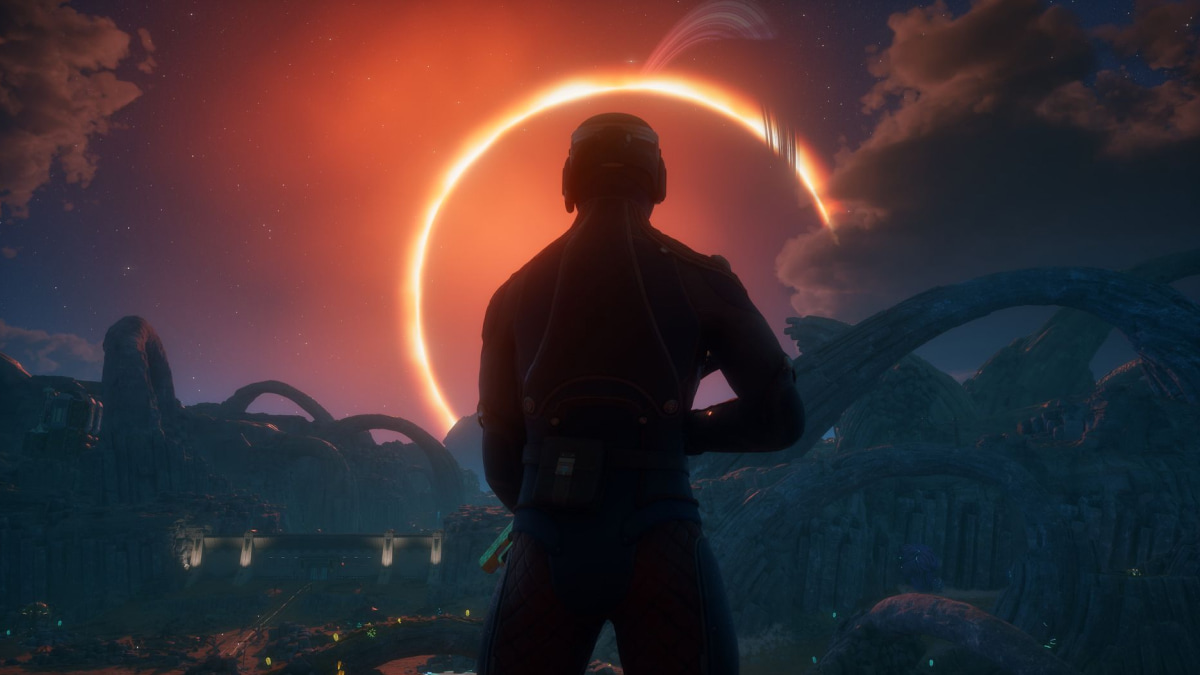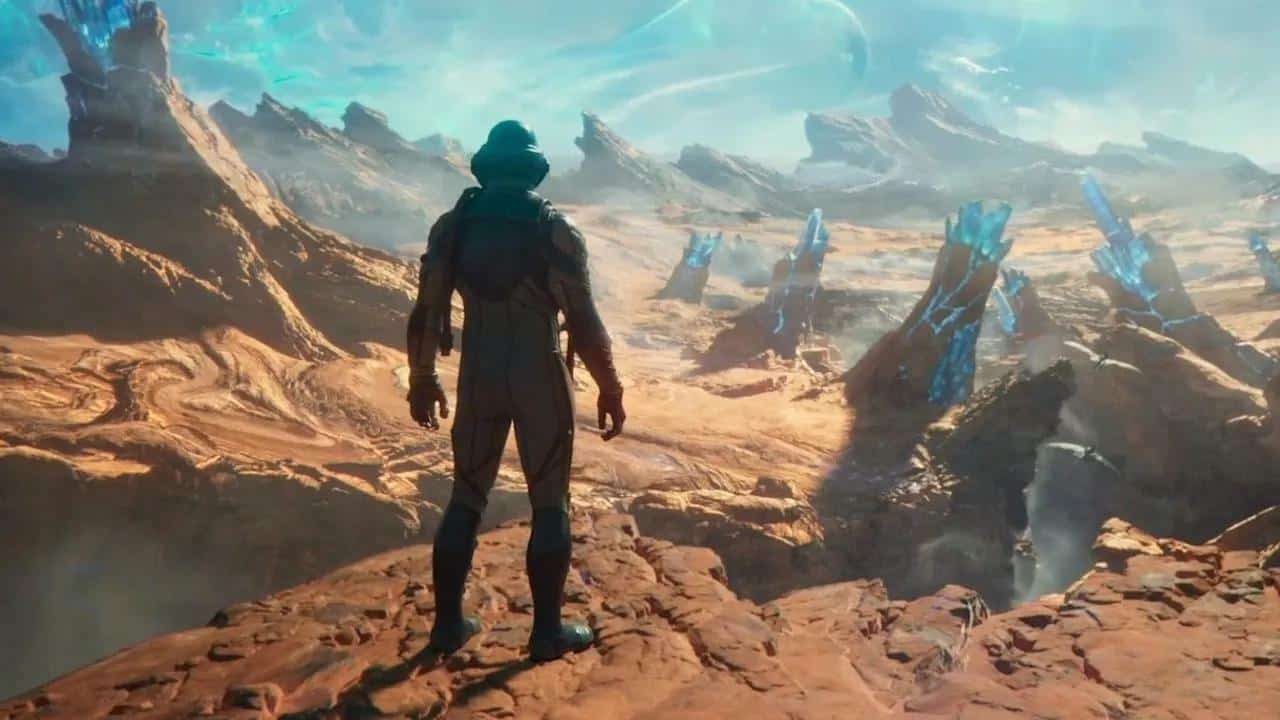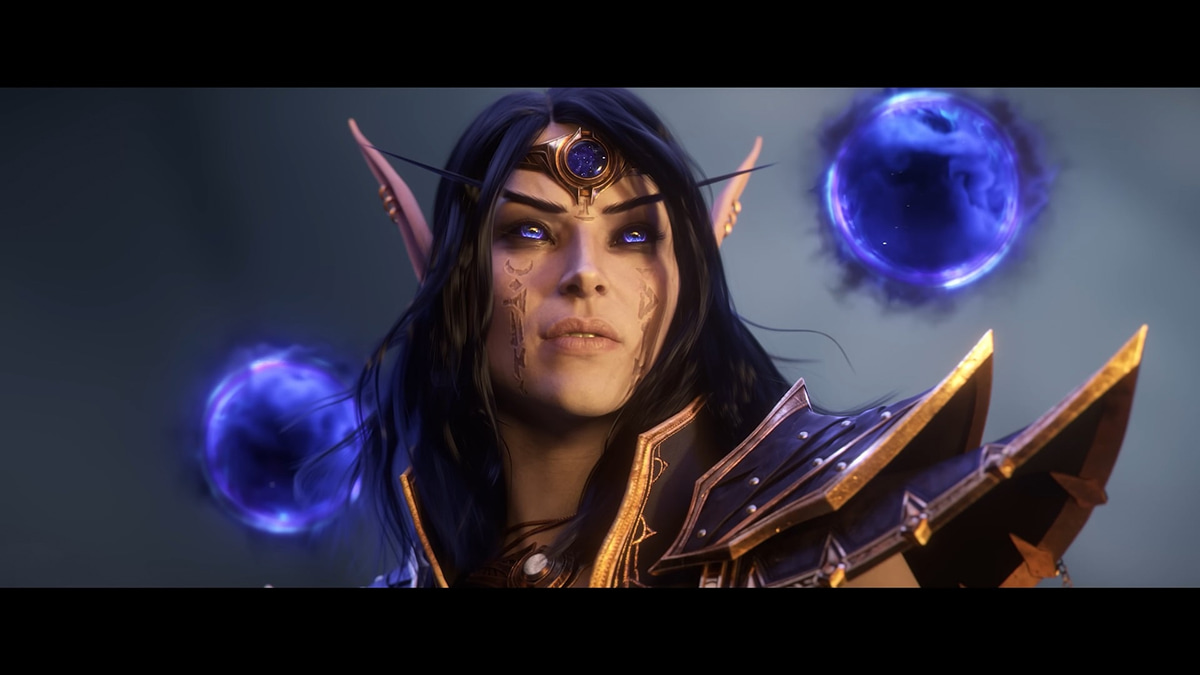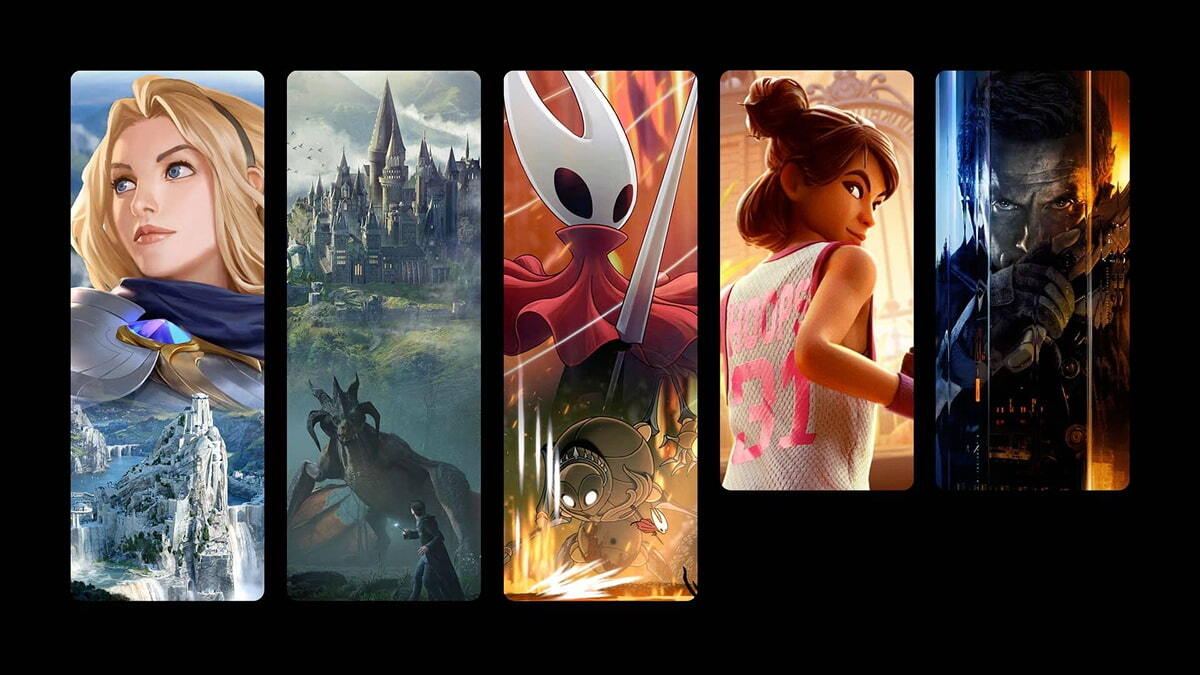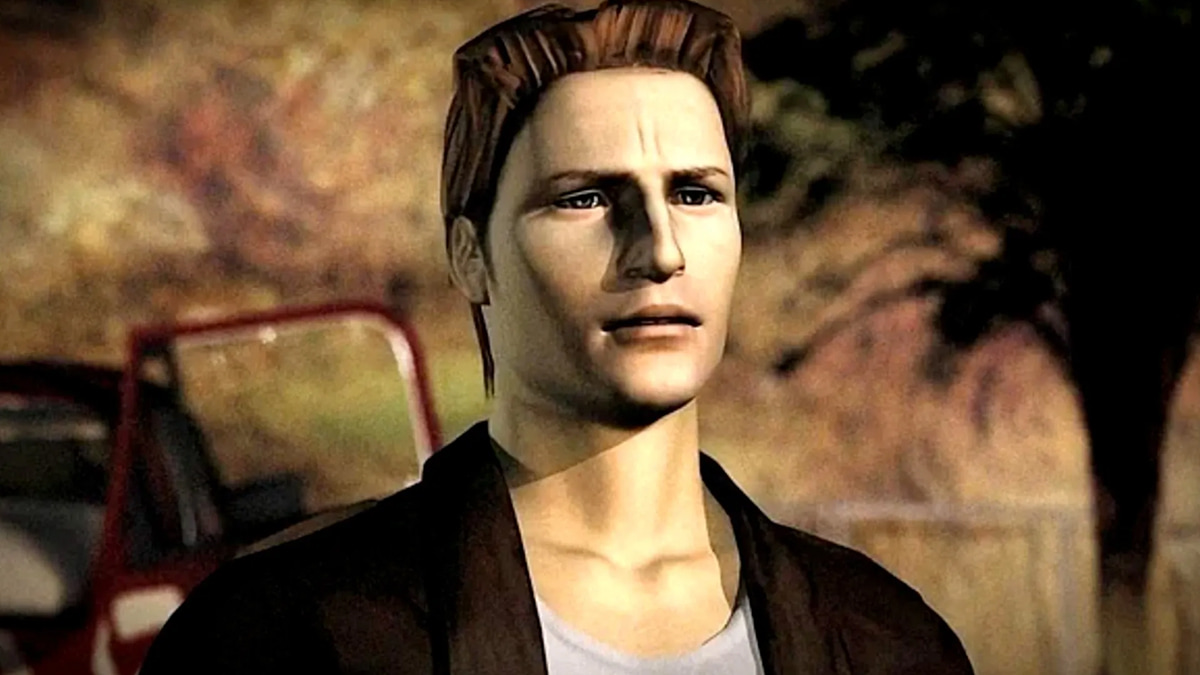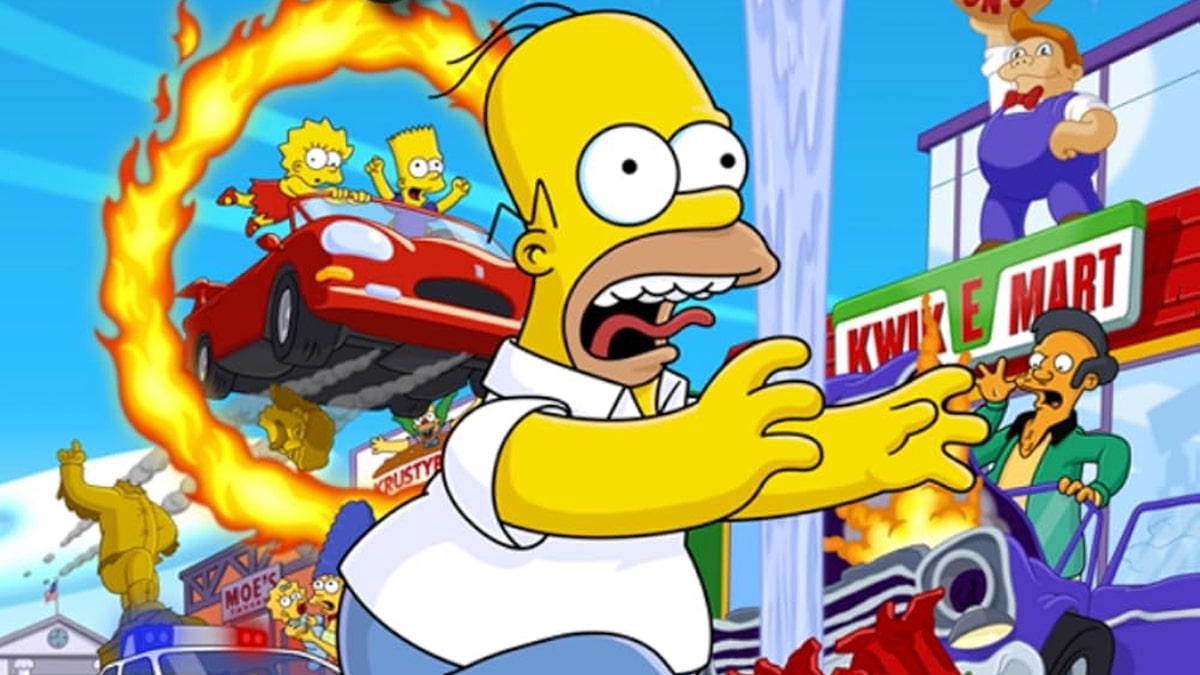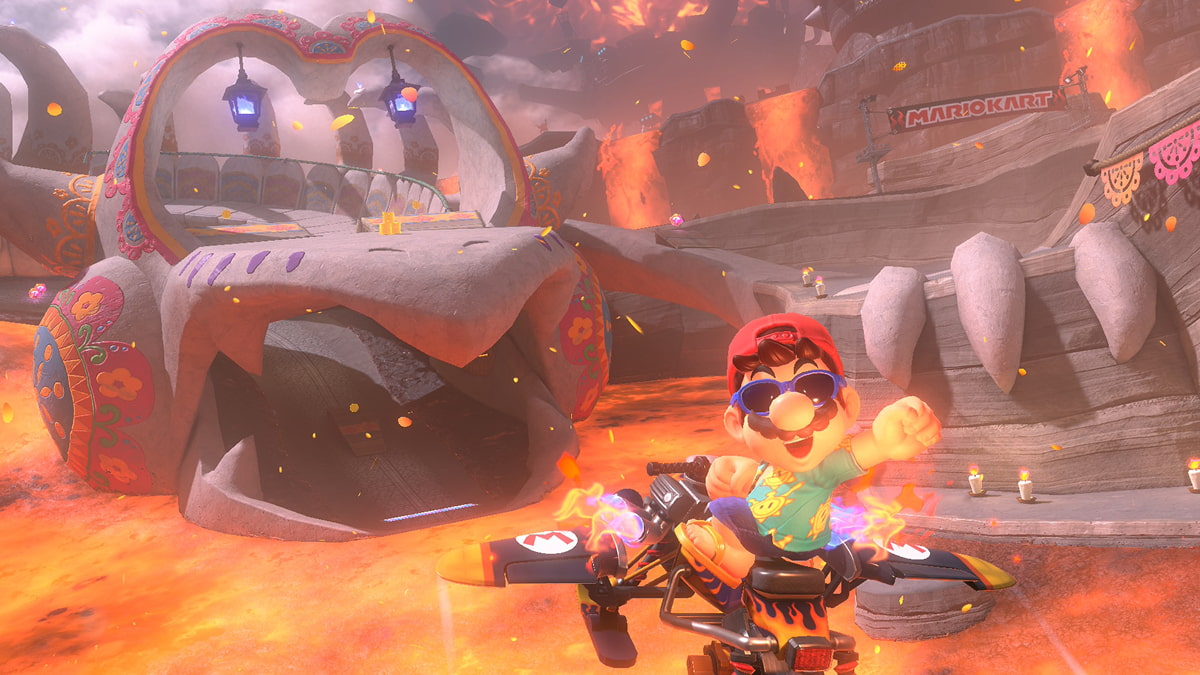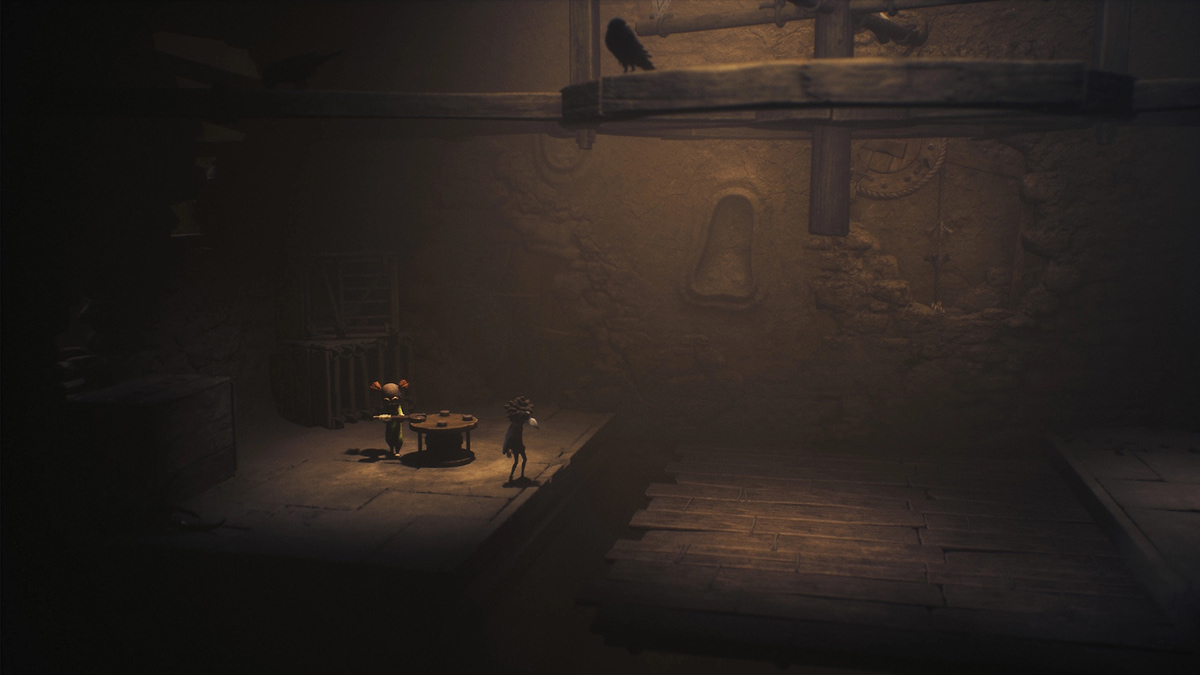You can trust VideoGamer. Our team of gaming experts spend hours testing and reviewing the latest games, to ensure you're reading the most comprehensive guide possible. Rest assured, all imagery and advice is unique and original. Check out how we test and review games here
- The villains in the Outer Worlds 2 must reflect the evils of our own time.
- Players must have meaningful agency.
- Without consistent beliefs and ideals, companions in The Outer Worlds 2 will feel flat and unappealing.
- Fortunately, Obsidian has a strong track record when it comes to these themes.
- The Outer Worlds 2 can be farcical and politically nuanced at the same time, if Obsidian plays its cards right.
Satirical sci-fi RPG The Outer Worlds 2 offers an opportunity for Obsidian Entertainment to go further in its skewering of corporate excesses. Its predecessor, The Outer Worlds, did plenty to expose you to the dehumanising privations of megacorporate life by showing you the drudgery of workers up close. Bleary-eyed wage-slaves toiled in factories while the wealthy lived in excess. It made for a bleak, if simple setting.
However, The Outer Worlds dropped the ball when it came to giving you the chance to solve these problems. The Outer Worlds tells you plenty but shows you little. That said, with The Outer Worlds 2 release date just on the horizon, we may be in for a more well-rounded critique of late-stage capitalism. Here’s what we want to see.
Tyrannical corporations should be an actual, intelligent threat
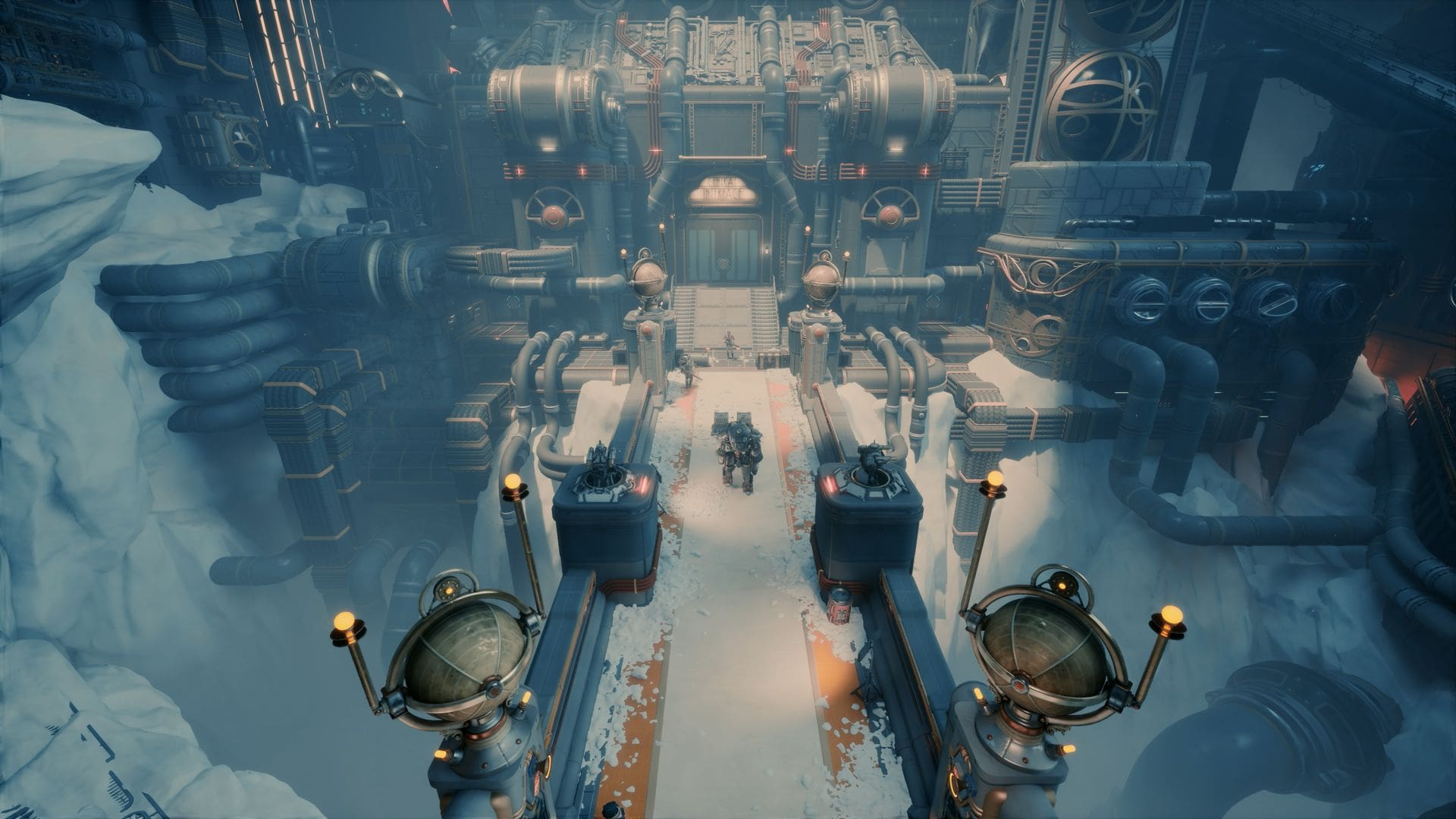
The Board, Halcyon’s collection of megacorporations and the reigning antagonistic government in The Outer Worlds, is too vague to act as a meaningful target for criticism. Despite their hyper-capitalist trappings, The Board was bereft of character and felt like a cardboard cutout, rather than a fully fleshed-out force of nefarious corporate evil.
The Board ruled with incompetent cruelty because that’s how they were, and because there were no other forces that mattered. The corporations barely even competed with each other, only paying lip service to the idea of corporate competition. The Board is portrayed as a group of feckless idiots, just like almost every other major player in Halcyon.
The Outer Worlds 2 is already on the right track for this. Auntie’s Choice is the villainous megacorporation de jour, and it already boasts a lot more character than the Board. Auntie’s Choice settlements are designed to be cults of personality, where figurehead Auntie Cleo is venerated as a de facto goddess. This will help us see the ideological toxicity of megacorporate capitalism first-hand as we play.
With Auntie Cleo as your personal savior, the political has the chance to become personal and, thus, more intimate and narratively effective.
The tyranny of choice
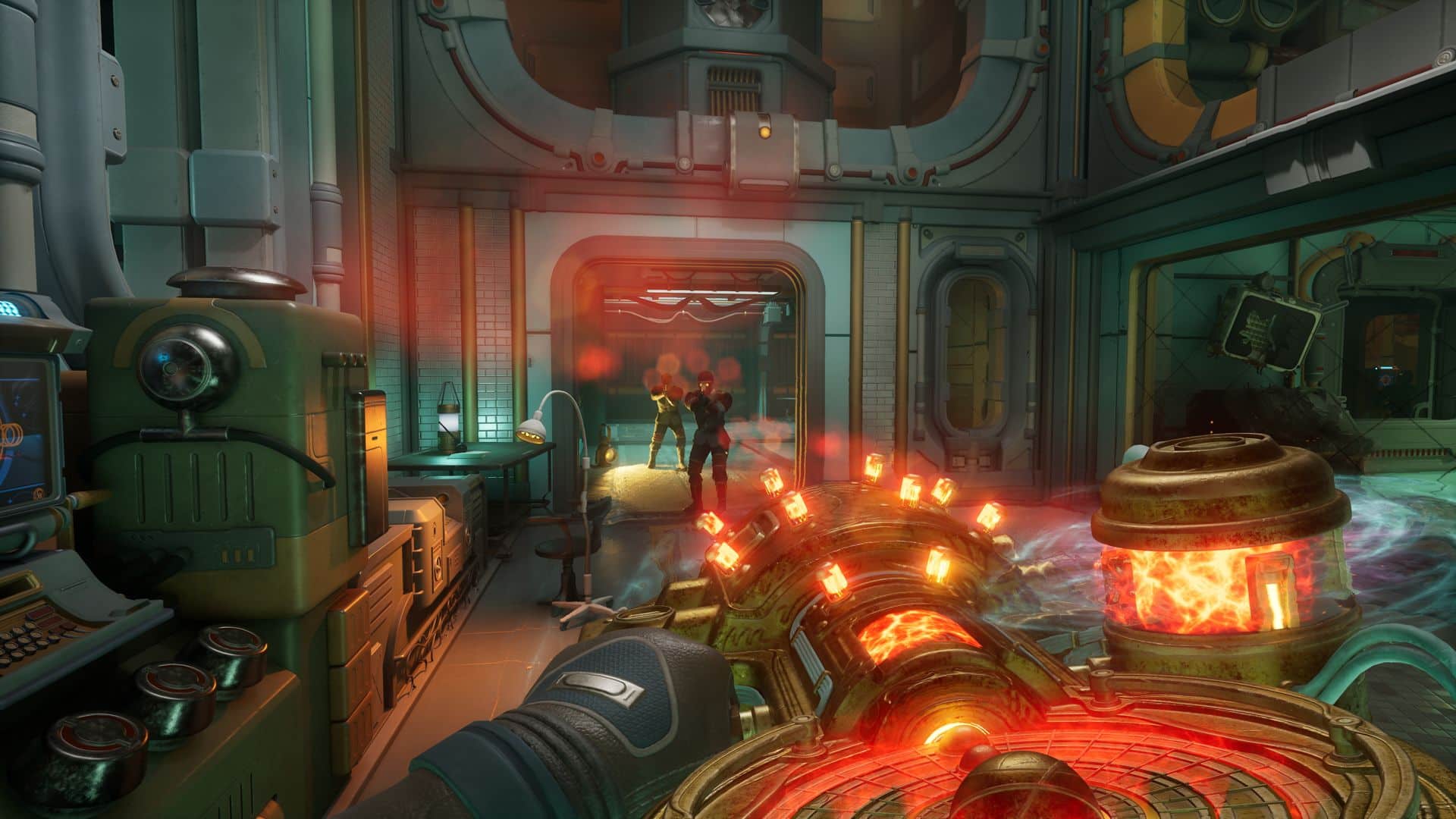
The Outer Worlds’ main story gave multiple opportunities to pick a side, generally between a representative of a megacorp or some local opposition. In the corporate backwater town of Edgewater, you must choose between the town’s local megacorporation and the deserters who have fled to start a commune.
Both of the standard choices have you divert power from one faction to another, flavouring both factions as equally heinous populations who simply want to destroy the other. However, while both choices have a human cost involved, only one of these factions forces people to rent gravesites for their departed relatives. The megacorporation is unambiguously evil in a structural sense. It’s hardly a choice.
What’s more, the woes of Edgewater’s workers are explained away by corporate incompetence rather than malice. There is a third ‘golden ending’, where you can save the town by putting the deserters in charge, but this ending carries the problematic notion that the problem was poor middle-management rather than anything truly structural.
Siding with the idiotic and obviously evil plutocrats has no moral or material upside. With The Board, there is no greater good or greater reward, so why would anyone need to reckon with their own soul on which path to take? In The Outer Worlds 2, player choices must be weightier. Asking you to choose between saving the puppy shelter and rendering the puppies into glue does not make for a meaningful dilemma. The Outer Worlds 2 must learn from this.
Companions must be guides, not vessels for our egos
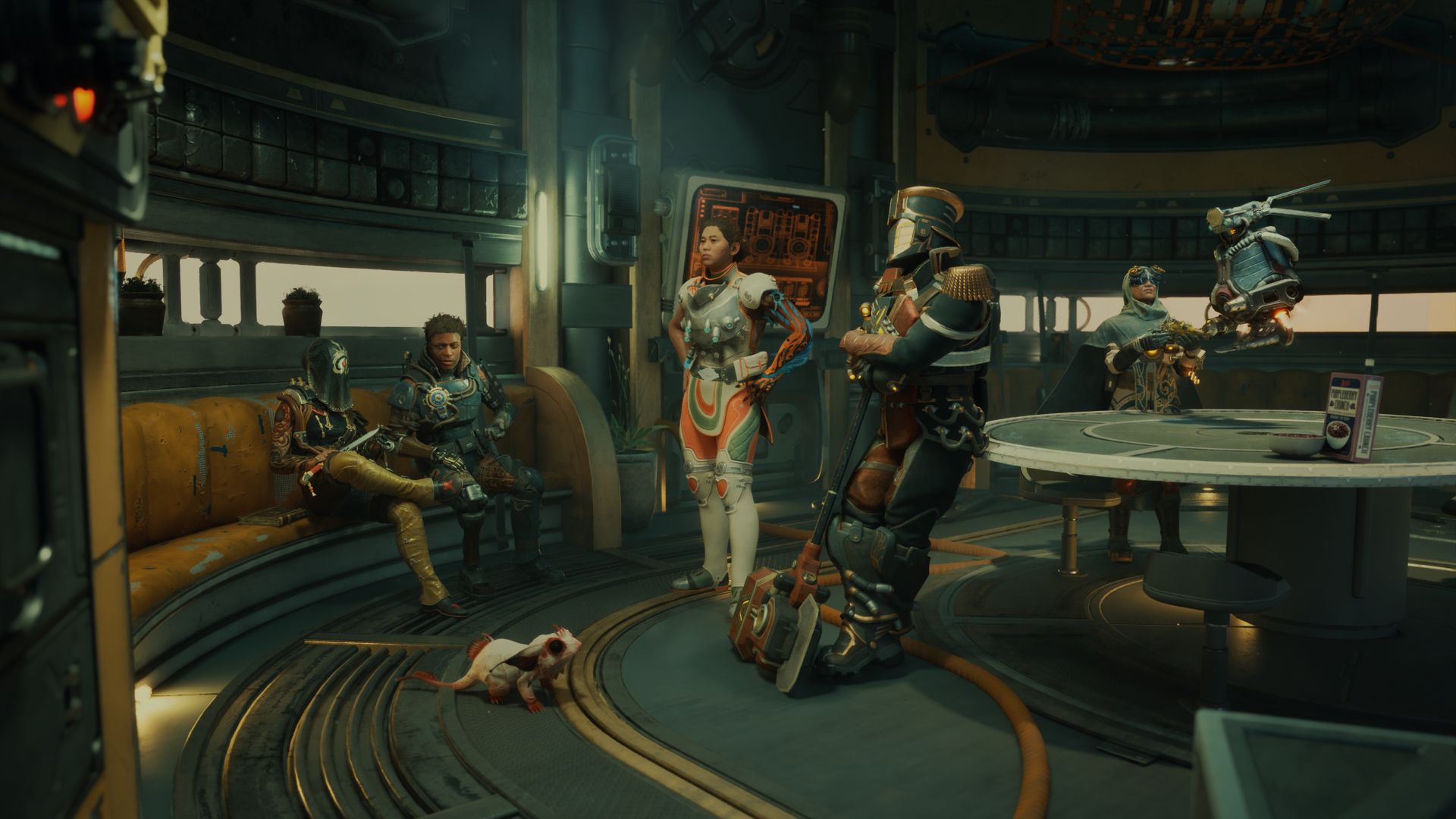
In RPGs, companions must be more than expository gateways. They must be guides, with their own interests and ideals independent from the will of the player. In The Outer Worlds, companions tended not to have much of an opinion on the lay of the political land. This was a mistake.
Vicar Maximillian DeSoto acts as a sole exception, giving insight into the setting’s religious elements. His personal questline aims to answer one of the oldest questions in the book: Is the universe structured, or completely chaotic? Unfortunately, DeSoto’s side quest ends with him getting high to sort out his own personal feelings, and any real understanding of this state-sponsored religion is thrown to the wayside.
The Outer Worlds 2 seems poised to avoid this problem. All of the companions are tied to one of the setting’s factions. This is a tried and tested way to give supporting characters their own distinctive ideologies. The trick here, however, will be to make them more than just two-dimensional spokespeople for their faction of choice. The opportunity is there, but Obsidian must stick the landing.
Comedy is serious business
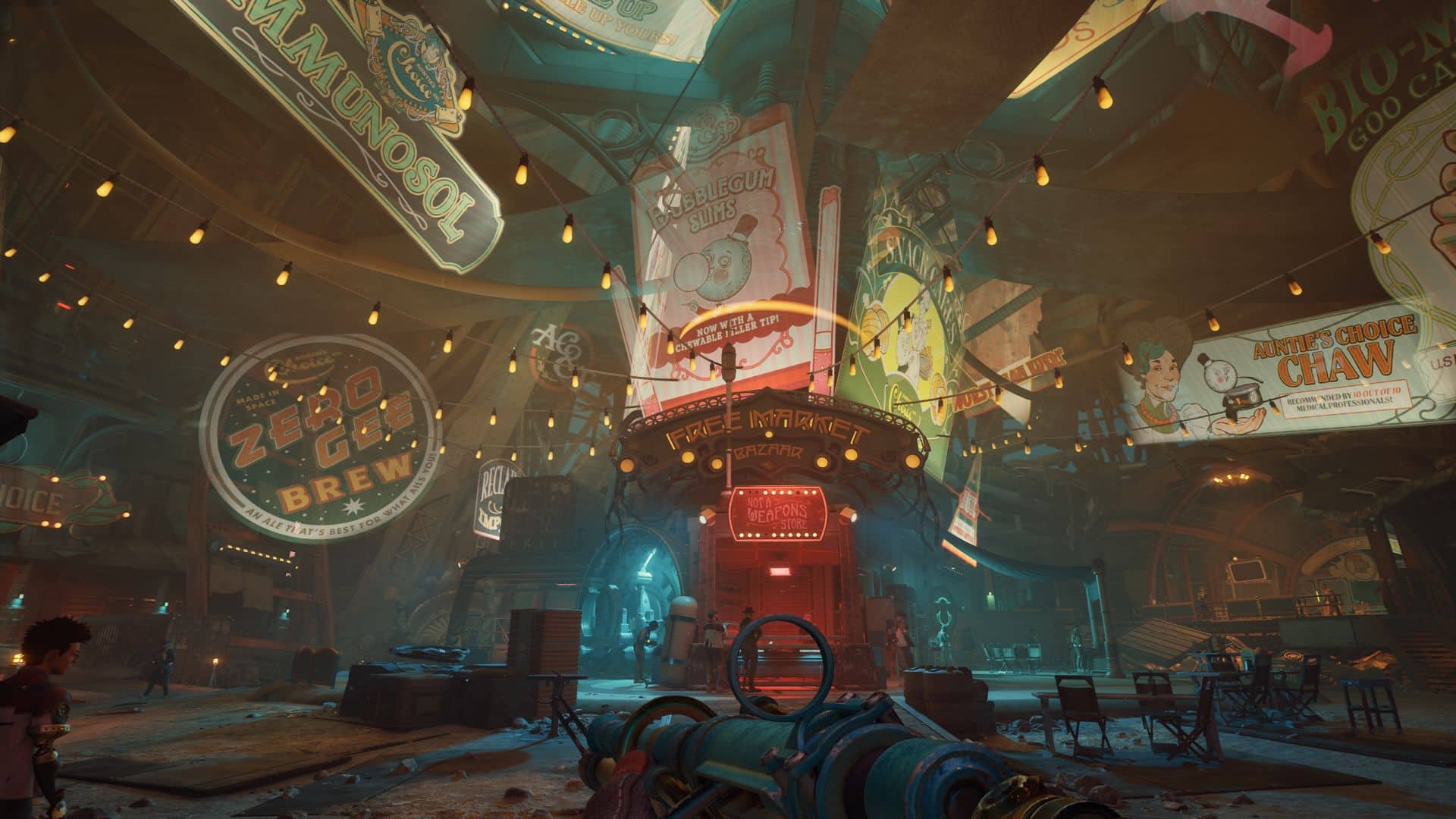
On the surface, Obsidian looks to be taking notes from Fallout. However, scratch the surface and you’ll find that The Outer Worlds lies far closer to Borderlands, given its penchant for irreverent sci-fi comedy. While amusing, this takes some of the bite from the RPG’s villains. If you can’t take the bad guys seriously, you can’t earnestly engage with their views and spell out why what they’re doing is so heinous.
Chairman Rockwell, the head of The Board and the colony, operates mostly as an absent villain. One of your earlier exposures to him is in the blooper reel of a propaganda film. The CEO and lead corporate enemy flubs his lines and jokes as he discusses the colony’s doom; he’s uncaring and negligent, but hardly a bone-chilling threat.
The Outer Worlds offered much potential to talk about the issues that plague our world. The failure of incompetent governments and the corruption of greedy corporations deserve to be called out. Still, The Outer Worlds felt too toothless or caught up in comedy to actually follow through on real criticism. With The Outer Worlds 2, there is ample opportunity to take things in a more politically salient direction, using art as a vehicle to hold the powerful, greedy, and dangerous to account.
FAQs
Yes, The Outer Worlds is heavily critical of megacorporations and capitalism in general. However, it does struggle to offer more specific critiques.
No, The Outer Worlds 2 companions are not romanceable. In the original game, you could set your companion Parvati up with someone else.
No, Obsidian Entertainment was acquired by Microsoft in 2018, and Bethesda was acquired in 2020. Both are teams owned by Microsoft.
Yes. Two years after release, The Outer Worlds had sold over 4 million copies, having successfully found an audience.
The Outer Worlds 2
- Platform(s): PC, Xbox One, Xbox Series S, Xbox Series S/X, Xbox Series X
- Genre(s): Action, Action RPG, RPG, Science Fiction, Shooter
